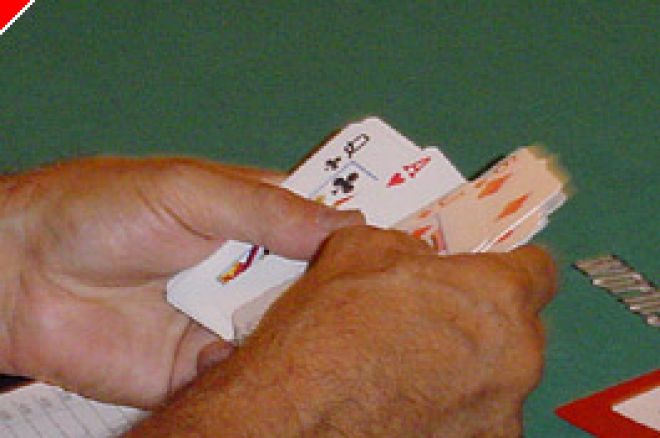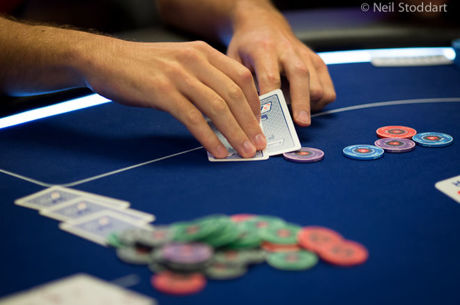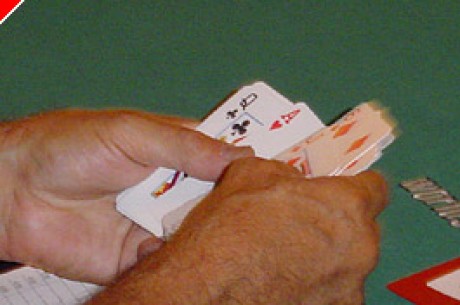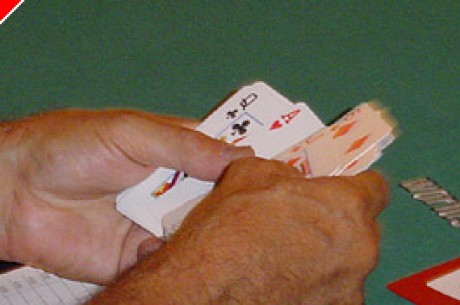Stud Poker Strategy - Subtle Plays

I was playing $5/10 Stud on line at Party Poker. I had (AA)J. The 3c to my immediate left brought it in. It was folded around to the player to my right. He had a J exposed as well. He raised it to $5.00. I immediately re-raised to $10. That was an awful move on my part.
I was so eager to say, in effect, that I had a better hand that I quashed the chance for him to compound his mistake on later streets.
Had I just called, he may well have either continued the bluff - if that was in fact what he was doing - or continued to bet a hand that was in fact inferior to mine - but that he wouldn't have any way of knowing was inferior. Those are opportunities that a good player should look for.
Here's another example. You hit your flush on Fifth Street and bet your three card exposed flush. Your opponent, clearly not believing you, raises. There is no hand that he could have that could beat you. It's tempting to raise. The pot isn't completely insubstantial and you know you have a winner - unless your opponent picks up a lucky full house or something.
Don't do this. Let your opponent's aggression work against him. Think of it as poker jiu jitsu. If you just call on Fifth Street he's likely to initiate the betting on Sixth at which time you can check raise him or even wait until the River to reraise. There are very few players who will lay down their hands on the River or on Sixth Street to a raise once they have initiated the betting - unless they are on a complete bluff. And if they are on a complete bluff then you have just extracted an extra big bet out of him by getting him to Bluff sixth street.
You have to be careful with this. You don't want to make these moves if your hand is either not very strong or if your opponent seems to have outs that could beat you. For example, in my case, I should have raised him if I didn't have the Aces in the hole - if they were 10s. That's because I wouldn't stand as good a chance of still being in the lead on Fourth Street as I did with the Aces in the hole. Similarly, if I only hit two pair on Fifth Street and not a flush, I would have been better advised to raise and then reraise his raise of my 3-flush. Let him think that I really do have the Flush - when I really only have two pair.
Low stakes poker is a game of pounding away when you have a perceived advantage. As you move up, as the antes get larger as a percentage of your bets, and as your opponents improve, it becomes a game of deceptively keeping your opponents from knowing too well what you have. It becomes a game of feinting and anticipation. The key becomes, in the broadest sense, to keep your opponent off balance without losing yours.








